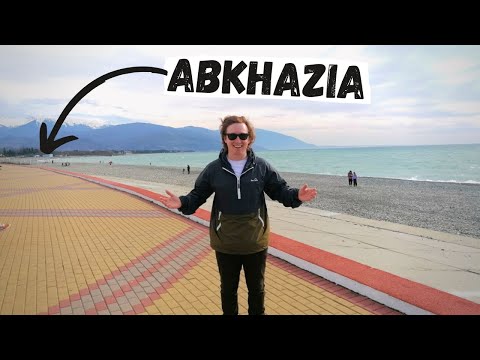
Nestled along the picturesque Black Sea coast, Abkhazia is a region that exudes a haunting beauty and a complex history. Declaring independence from Georgia in 1999 following a brutal conflict, Abkhazia remains recognized by only a handful of countries worldwide, leading many to consider it a ‘country that doesn’t exist’ in the international legal sense. Despite its ambiguous status, the region offers a unique window into geopolitical tensions and the struggle for national identity.
#### Historical Background
Abkhazia’s history is intricately woven with that of Georgia and the broader Caucasus region. Historically part of various Georgian kingdoms and principalities, it was later incorporated into the Russian Empire in the 19th century and subsequently became part of Soviet Georgia. The disintegration of the Soviet Union ignited ethnic conflicts and an intense nationalistic fervor across the Caucasus.
The late 1980s and early 1990s were particularly turbulent for Abkhazia as ethnic tensions rose significantly. These tensions culminated in a fierce war from 1992 to 1993 between Georgian forces and Abkhaz separatists, along with their allies. The conflict resulted in significant loss of life, widespread destruction, and large-scale displacement—predominantly affecting ethnic Georgians.
#### International Recognition and Status
Following its declaration of independence, Abkhazia has been recognized by only a few countries — notably Russia, Venezuela, Nicaragua, Nauru, and Syria. This limited recognition keeps Abkhazia largely isolated on the international stage. It is not a member of the United Nations or any other major international organizations where statehood is required for membership.
The majority of the world community supports Georgia’s sovereignty over Abkhazia. The international narrative predominantly views Abkhaz independence as an outcome of Russian geopolitical maneuvers designed to weaken Georgian statehood and expand Russian influence in the strategic Black Sea region.
#### Life Inside Abkhazia
In spite of its contested status, life in Abkhazia moves forward amidst its own set of challenges and advancements. Economically, it relies heavily on tourism, agriculture (notably citrus fruits), and financial aid from Russia. The picturesque beaches along its coast attract visitors seeking beauty off the beaten path.
Politically and socially, however, there are significant strains due to its international isolation. Issues like lack of development funds from global organizations or restrictions on international trade affect daily life significantly.
#### Culture — A Blend Amidst Adversity
Culturally rich with traditions from both Christian Orthodox heritage linked with Georgia and distinctive local customs influenced by various groups across time including Turkic peoples during Ottoman times or even ancient Greeks during their colonial period – Abkhaz culture represents resilience amid adversity.
Abkhazians speak both their native language (Abaza) which belongs to Northwest Caucasian family but also use Russian extensively as educational medium or communication link with Russia which acts as vital economic supporter due economic blockade imposed by most nations aligned with Georgia’s claim over territory.
#### Conclusion
Abkhazia stands as testament to complexities arising when ethno-nationalistic aspirations collide against backdrop geopolitical interests taking precedence over rights or desires local populations may harbor towards shaping their destinies independent external influences.
As it continues navigating uncertain waters marked by non-recognition yet striving explore opportunities towards self-determination under shadow powerful benefactors – story Abkhaz remains poignant reminder unresolved legacies post-Soviet space intertwined global politics often leave deep scars landscapes they touch.
